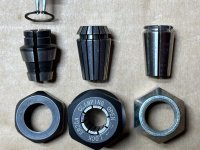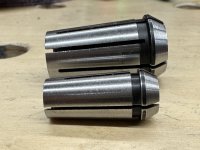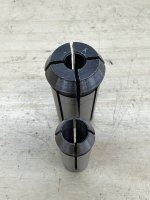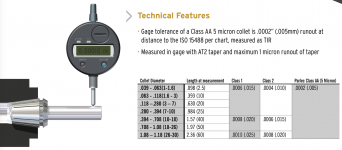Steve1
Member
rvieceli said:While all this metrology is an interesting exercise, in real world use it may not make that much difference. You need to remember that adage “perfection is the enemy of good”
Good point.
I am of the opinion that in metalworking, a micron (.001mm) does not exist.
In woodworking, a thou (.001") does not exist.




